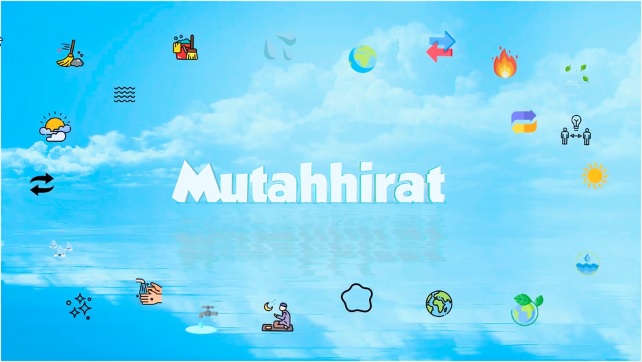Ritual cleansers known as Mutahhirat are agents that cleanse things that have become ritually impure (najis things).
There are nine ritual cleansers:
- Water
- Earth
- Sun
- Transformation (istihalah)
- Transfer (intiqal)
- Islam
- Consequencing (taba’iyyah)
- Removal of an inherently unclean substance (najis al-‘ayn)
- Disappearance of a Muslim
1.Water: Water makes an impure object pure with five conditions:
- The water must be pure (unadulterated). It means that unadulterated water such as rose water cannot purify an object that has become ritually impure.
- The water must be clean. Najis water cannot purify any object that has become ritually impure.
- The water must not become adulterated when an impure object is washed in it.
- Any residue of an inherently impure thing (najis al-‘ayn) must not remain on the object, after that object is washed.
- When washing an object that has become ritually impure with a small amount of water, the runoff water must be separated from the object.
2. Earth: A person the soles of whose feet or shoes, become impure because of coming in contact with something ritually impure on the ground, will be cleansed whenever they walk about ten feet on dry and clean ground if the inherently impure thing (najis al-‘ayn) has disappeared.
Asphalt or bituminous soils do not clean feet or the soles of shoes.
Note: Walking on an asphalt road does not clean feet or soles. Also earth does not purify other parts of our body or clothes.
- The Sun: It can purify impure earth and immovable things such as buildings, walls, doors, windows, trees etc., under four conditions:
a.the impure object is wet.
b. the impure substance has disappeared.
c. no barrier preventing the sun from shining on it.
d. the impure object becomes dry from the sunshine.
4. Transformation (istihala): An impure object is cleansed if it has changed to something else, such as wood that has been transformed into ashes by incineration, wine that has turned to vinegar, or a dog that had fallen into a field of salt and turned into salt. But if its essence has not changed, like impure wheat turning into flour or impure sugar dissolving in water, it cannot become tahir (pure).
5. Transfer (intiqal): The blood sucked by mosquitoes and other insects from the body of a human or animal that has blood that spurts when a large vein is cut is najis if that blood is still considered human or animal (like the blood that a leech sucks from a human body). If, however, the blood becomes part of the body of that insect, that blood becomes cleansed like the blood of a mosquito. The same rule applies to other impure substances.
6. Islam: If a disbeliever who is not from the people of any divine book, converts in Islam by testifying that there is no God but Allah, and that Muhammad is the Messenger of God, then his/her body, saliva, nasal mucus, as well as their sweat, will become tahir (cleansed).
7.Consequencing (tab’iyyah): It means that, when a najis thing becomes tahir (cleansed), then another thing associated with it also becomes tahir.
For example, when wine turns into vinegar and becomes tahir, then its container also becomes tahir as a consequence of the wine becoming vinegar. Or if one washes a najis shirt, when the shirt becomes tahir, one’s hands associated with it become tahir too.
8. Removal of an inherently najis substance (najis al-‘ayn): If an animal's body becomes contaminated with something impure, as soon as it is removed, the animal's body is cleansed and there is no need to wash it. The same rule applies to inside the human body, for example, the blood that comes out of the gums is tahir, if it has been expelled with saliva.
9. Disappearance of a Muslim: If someone was sure that the body, clothes or anything belonging to a particular Muslim is impure and one does not see that Muslim for a while and then sees that person treating that which had been known to be impure as if it was pure, then that thing should be considered as cleansed (tahir). This assumption must be conditional upon the knowledge that that Muslim person was aware of the status of the previous impurity and knows about the rules of purity and impurity.
To learn more about the practical laws of Islam, please visit: www.findtruth.co.uk











